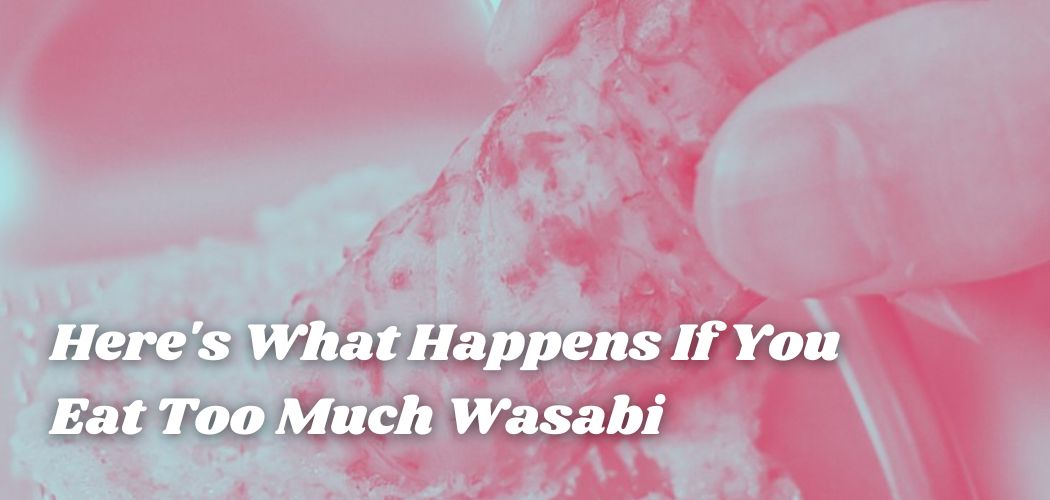Wasabi is widely recognized as the green paste used as a condiment in all types of sushi.
Wasabi is produced from the rhizome, a plant stem that develops underground where one would expect to find the plant’s root.
The authentic flavor of wasabi is green and vibrant, with a hint of rapidly vanishing. It is aromatic and flavorful enough to allow the flavor of raw fish to stand out.
Overeating may cause your mouth to feel like it’s on fire, but it might also cause some medical problems.
Contents
Excellent Source Of Nutrients
Even though wasabi has a decent nutritional profile, and contains small amounts of essential nutrients such as vitamins B3, B1, A, C, and B2, as well as minerals such as calcium, magnesium, and potassium.
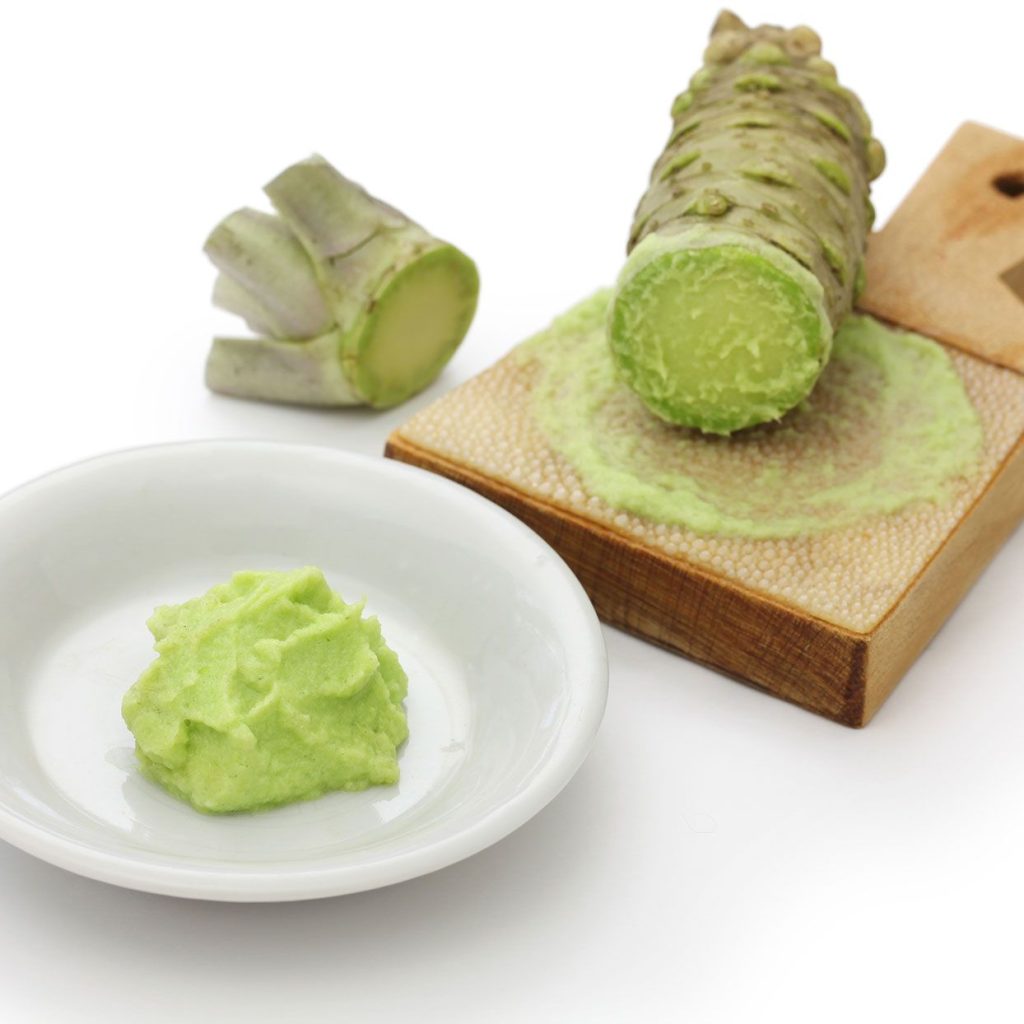
The nutritional intake is minimal because we consume less than 100 grams per serving. Nonetheless, the plant remains a valuable addition to our diet due to the anticancer, cardiovascular, antibacterial, and anti-inflammatory effects of its isothiocyanates content.
Potential Health Advantages
Wasabi, like many of its relatives, possesses a number of beneficial nutritional characteristics and health impacts. The following are some of the most notable nutritional and health benefits of wasabi.
Cardiovascular
Researchers have discovered that wasabi has powerful anti-aggregation and cholesterol-lowering capabilities.
Not only does it reduce high blood cholesterol by boosting gallbladder and liver function for better digestion of dietary fats.
But it has also been demonstrated to reduce the risk of stroke and heart attack by avoiding the creation of cholesterol plaques within artery walls and blood clots.
Fights Against Cancer
Wasabi contains significant levels of isothiocyanates, which are naturally occurring compounds found in the cabbage family. According to a study, isothiocyanates can induce apoptosis (which is a type of programmed death cell) in cancer cells developed 24 hours after intake.
It is believed that eating vegetables such as mustard, cabbage, turnip, horseradish, cauliflower, wasabi, and broccoli inhibits the growth of existing tumors and reduces the risks of cancer.
It is believed to be quite effective in the treatment of prostate cancer and breast cancer due to its ability to clear excess hormones such as stomach cancer, and estrogen due to its ability to suppress the proliferation of stomach cancer cells.
In addition, excessive and long-term consumption of fermented, spicy, and sour foods has been proven to increase the risk of cancer in the stomach, mostly via increasing stomach acid production and accompanying adverse effects.
Digestion
Wasabi’s primary ingredients tend to stimulate digestion via boosting liver and gallbladder function in preparation for fat digestion.
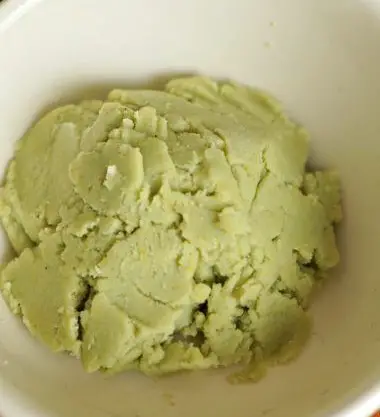
Nonetheless, consuming excessive amounts of wasabi may produce gastrointestinal issues such as diarrhea, nausea, sweating, or disorientation, as well as aggravate gastritis and acid reflux.
Natural Antibacterial Effectiveness
Wasabi is renowned for its potent antifungal, antibacterial, and antifungal effects.
Studies indicate that it is effective against both Staphylococcus and E. coli. According to a renowned nutritional journal, wasabi suppresses the growth of Streptococcus mutants, the bacteria responsible for dental cavities, tooth rot, and dental plaque.
Apparently, the isothiocyanate chemicals in wasabi hinder bacterial adhesion to teeth, hence preventing tooth decay.
Adverse Effects Of Overconsumption
If you’re wondering what wasabi might possibly be bad for, here are some of the most significant adverse effects
Acid Reflux May Worsen
Wasabi and other spicy foods and spices are hazardous for reflux like gastroesophageal as they come into the category of foods that produce acid reflux.
A person with gastritis, stomach acidity, stomach ulcers, or heartburn will have more extreme symptoms and, over time, a worsening of their condition.
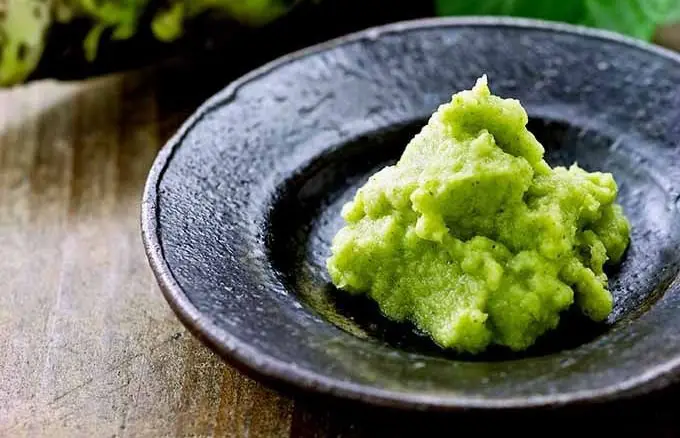
However, a person without any digestive issues can consume modest amounts of wasabi as part of a balanced and healthy diet.
And while it is bad for acid reflux, wasabi is also harmful to pregnancy, as pregnant women suffer from acid reflux more severely as the pregnancy progresses, and these foods will not help.
Bad For Gastritis
Extremely hot meals, such as wasabi, are typically detrimental to gastritis. They can have a potent irritant impact on the lining of the stomach and worsen existing gastritis.
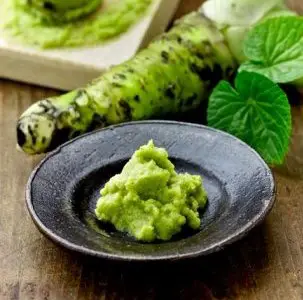
Those who are predisposed to stomach acidity can develop gastritis even in the absence of a preexisting ailment if they consume an excessive amount or frequency of wasabi.
All pungent foods, such as ginger, spicy chili peppers, horseradish, and wasabi, are detrimental to gastritis.
Conclusion
Wasabi has an incredibly pungent flavor, which is the primary reason why people enjoy it. It is believed that the powerful antibacterial activity of its spiciness contributes to its widespread popularity.
However, the same molecules that give it its fiery flavor are severe irritants to the digestive and respiratory systems and can interfere with blood clotting processes.
If you suffer from a variety of digestive illnesses, blood clotting issues, laryngospasms, or asthma, consuming wasabi may not be advisable.
